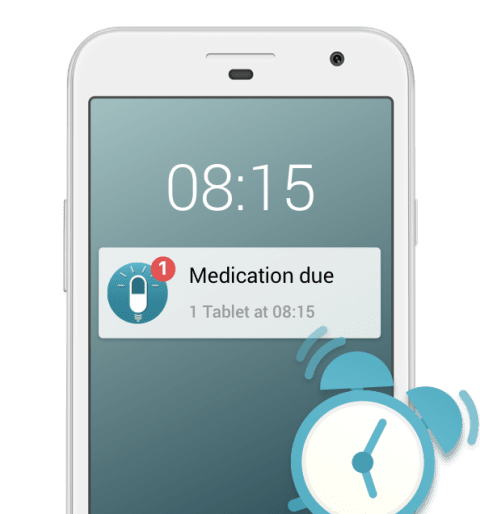Everyone knows they need to brush their teeth, take showers, and wash their hands. What many people may not consider is that ideally, they should take steps to preserve their mental health too, not just their physical health. You are not alone if you have not heard the term mental hygiene before, but it has been around since the 19th century. In today’s blog, we will break down the term’s history, what constitutes mental hygiene, and how you can implement it into your life. In turn, hopefully reducing your risk of developing mental disorders such as psychosis.
Mental Hygiene Practices:
The earliest mentions of mental hygiene were in the mid-19th century. William Sweetser, the father of this idea, published a book illustrating the connection between mental health and wellbeing, as well as the importance of taking care of one’s mental health. At the time, mental health topics were taboo, and patients with serious conditions were treated poorly. Sweetser’s ideas, and the subsequent ideas that have followed essentially amounted to a handful of best practices that can help to maintain a healthy mind. None of the items listed are a substitute for seeking professional help. You should always follow your doctor’s advice and speak with them candidly regarding your mental health concerns.
Remember the basics:
Mental and physical wellbeing are often intertwined. The first step to mental hygiene is making sure you get a healthy amount of sleep (Usually 7-9 hours) and eat a balanced diet. An improved diet and proper sleep have been shown to help with symptoms of both depression and anxiety.
Practice self-acceptance: Working to accept yourself can be a challenging and abstract concept, but it’s an important part of maintaining mental wellbeing. Oftentimes, areas like this may be best improved upon with the help of a therapist.
Try to avoid impulsiveness:
Another area that may be best improved upon with professional help, controlling your feeling is not about blocking them. Rather, it’s about knowing how to properly interpret your feelings and in turn, help yourself respond better. Taking time to reflect on your feelings and what causes them may be beneficial when it comes to understanding yourself better.
Set goals for yourself:
Setting important but realistic goals in our lives can help increase motivation and promote an overall sense of purpose. Think both about your short-term and long-term goals based on where you see yourself in the future. It may also help you to share these goals with someone you trust.
Manage your mindset:
It’s impossible to avoid negative thoughts, but the impact of positivity can be massive. By attempting to stay positive, your overall mindset may improve in the long-term. By working as much as possible to adjust your mindset, you can be ready for negative thoughts and feelings when they occur. Again, this is an extremely abstract concept and one that many people require professional assistance to work through.
Maintain your fitness:
The level of activity possible can vary greatly between individuals. However, if you are able to exercise regularly, it can help to clear your head and bolster mental health. If your personal circumstances make exercise challenging, you may be able to substitute mindfulness, meditation, or breathing exercises.
Connect with others:
This can be challenging, especially during a pandemic, but taking time to connect with others is healthy. Humans are social creatures by nature, therefore positive social interaction can benefit mental wellbeing.
Applying Mental Hygiene to Your Life:
After reading the last section, most people may be thinking “great, I know what mental hygiene is. How do I practice it in my life though?” This is a fair question, a list of principles to follow is daunting, and it can be hard to decide where to start. The key, as with many parts of a healthy lifestyle, is building habits. You should first consider which parts of your mental hygiene you’re already doing. Perhaps you’re already very active, maybe you get a solid 8 hours of sleep every night, or maybe you make time for socializing frequently. Once you know what you do well, you’ve got to identify what needs work. Once you know which bits to focus on, implementing mental hygiene practices in your daily life is far less daunting.
Once you have a list of things you’d like to improve upon, it’s time to make yourself do it. This can be something as simple as setting a phone reminder to take a walk or have fifteen minutes of reflection. It can even be a sticky note on your bathroom mirror so when you start your day you’ll be reminded of a certain mental hygiene practice. It may also help to let someone you trust know about any goals you’ve set for yourself, to help you stay accountable. Most people won’t be able to perfectly implement a mental hygiene routine overnight, but with time and persistence you can greatly improve your long-term mental wellbeing.
It’s very important to note that mental hygiene is potentially just one part of maintaining your mental wellbeing. If you attempt mental hygiene practices without seeing the improvement you hope for, you should not feel discouraged. Mental health is a complex issue, and you may benefit from seeing a therapist, not only can they help with your general mental hygiene, but they can also help you work through any other concerns you may have. If you think you may benefit from seeing a therapist, you should avoid waiting longer than necessary. The sooner you seek help, the sooner you can get to feeling your best.
Here are some other articles we think you might be interested in:
“I Hate My Life”: Understanding and Treating Clinical Depression
Understanding and Supporting People on the Schizophrenia Spectrum



